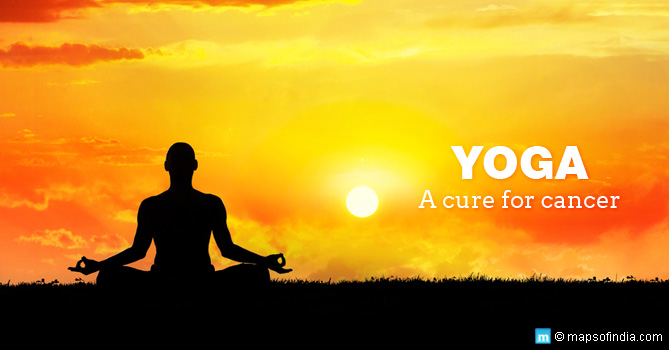
The recent statement by the Union Minister of State for AYUSH, Shripad Naik that a yoga based cure for cancer is a possibility, has set the grapevine abuzz in the medical field. Apparently, a Bengaluru-based deemed university of yoga, Swami Vivekananda Yoga Anusandhana Samsthana, has presented a paper to the ministry based on the research conducted in the university. The ministry is in the process of vetting the report, and the full details are not likely to be available till next year.
What does yoga do?
Whatever the outcome of this vetting process, it is worth noting that yoga has been proposed as a possible cure for a number of ailments – both common and rare ones. While it is said to keep the blood pressure under check, it is also known to bring down sugar levels in those with diabetes. While some people opt for yoga as a weight loss technique – especially the many variants of yoga, such as power yoga – there are those who do yoga for general fitness. A few others also do yoga to bring about a calm disposition and to keep mental disorders at bay.
It may be noted that yoga does not aim at benefiting any one particular faculty in isolation. It is a holistic practice, a way of life that aims to bring about a harmony of mind, body and spirit. The real yogis of the world would insist that the primordial aim of yoga is spiritual in nature – union of the individual soul with the Universal Soul. The other benefits that one may accrue, such as mental and physical health, are only natural byproducts of the practice.
It is to be pointed out that there have been certain other thought based and meditative practices that have cured cancer in a few individuals. All of these techniques aim to bring about the same harmony that yoga tries to achieve. Recently, there has been a convergence of these thoughts and practices in recognition of the universal nature of the central healing power that they tap into. There are also other centres (such as NIMHANS, Bengaluru) where the effects of yoga on mind and body are being studied even now.
What are the principles of yoga?
Patanjali’s astanga yoga practice has eight principles which when taken together demonstrate the holistic approach of yoga. These are, yaama (self-restraint), niyama (scriptural rules), asana (yogic postures), pranayama (balanced breathing exercises), pratyahara (withdrawal of senses from objects), dharana (concentration), dhyana (meditation) and samadhi (transcendental state).
Of these, yaama comprises ahimsa (non-violence), satya (truthfulness), asteya (abstinence from stealing), brahmacharya (celibacy) and aparigraha (abstinence from possessions); and niyama comprises shaucha (purification), santosha (contentment), tapas (austerities), swadhyaya (regular study of scriptures) and ishwara pranidhana (deep devotion).
Needless to say, the practice of yoga involves a change in the entire pattern of living – from a sedentary lifestyle and overeating to activity and right dietary habits.
What are the benefits of yoga?
Among the many benefits ascribed to yoga, here are a few: Overall fitness and flexibility, stress relief, inner peace, improved immunity, increased energy, better intuition and relations, better control of conditions such as hypertension, diabetes, arthritis and asthma.
What type of yoga should one do?
As of now, even within India, there are many variants of the Patanjali technique of yoga. Hatha, vinyasa, Bikram, power, Iyengar, etc are practiced not only here, but also in the West. More innovations are being incorporated into the central technique especially in the West to make yoga more appealing to the younger generation. There is no one-size-fits-all model of yoga, and one has to adapt the right technique based on his or her body constitution, liking, disposition and the benefits accrued.
On a personal note, I want to add that I have been doing yoga for more than a year now. I find it to be a highly satisfactory exercise to have in my weekly regime. It has helped me maintain a flexible body and has increased the overall sense of calmness, which is getting better as I continue the practice.
So, given the holistic nature of yogic practice, wherein healthy changes are incorporated in a person’s bodily habits, daily routine, lifestyle and overall viewpoint of life, it should be hardly surprising if next year, cancer cure would be achieved entirely through the practice of yoga.





